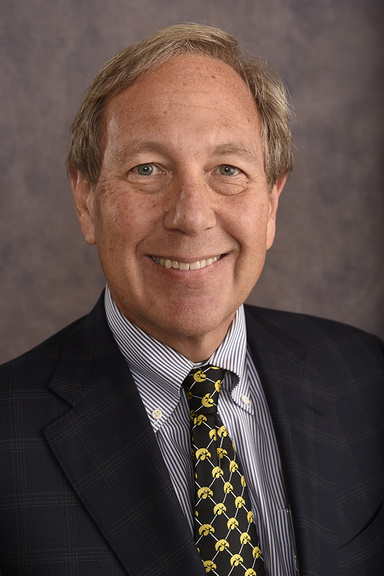University of Iowa President Bruce Harreld attended the Governor’s Condition of the State address Jan. 12 at the Iowa Capitol. State lawmakers opened the legislative session this week amidst warnings of a tight budget year. But Harreld says he remains committed to garnering support for a proposed $4.5 million increase to recruit and retain faculty.

“Faculty pay is about attracting the best talent, which results in a better education for our students, a strong talent pool for the state, and cutting-edge research,” Harreld says.
The Iowa Board of Regents has approved asking lawmakers for a 1.9 percent increase in general education funding for the UI, which amounts to $4.5 million. The proposed “faculty vitality” initiative is the university’s top priority for fiscal year 2017. According to U.S. News & World Report, the university’s faculty compensation rankings dropped 26 spots, to 103rd, since 2004. During that same period, the UI’s rankings as an institution dropped 25 spots, to 82nd. Harreld sees a correlation.
“The University of Iowa competes for faculty on a national level, and I’m hearing from the faculty I meet with that, in some key positions, we are being cherry-picked by other institutions,” Harreld says. “I believe it is something we need to address as soon as possible.”
State revenues are expected to grow by about 4 percent this year, but previous spending commitments have left legislators with little wiggle room in the budget.
That’s prompting the chair of the Senate Appropriations Committee, and one of the university’s strongest advocates, to downplay expectations.
“It’s going to be very difficult to get any increases,” says Senator Bob Dvorsky, D-Coralville. “People on campus need to keep advocating for funding for public education.”
The UI is also seeking new money for a strategic initiative designed to address the state’s shortage of Information technology (IT) professionals. The proposed $3 million ($1 million per year over three years) would finance extended IT boot camps for employees who need to refresh or expand their skills, student internship programs in small and medium-sized companies, and summer IT training for K–12 teachers.
Representative Bobby Kaufmann, R-Wilton, says the proposal has merit, but given the state’s limited resources, it must fit into a broader education package.
“The new House Republican leadership wants to take a more holistic view of education so that funding for Iowa’s K–12 schools, community colleges, and public universities is coordinated rather than competitive,” says Kaufmann. “And all of us in the Johnson County delegation will fight to make sure the University of Iowa is a part of that picture and treated fairly.”
The Board of Regents' legislative request includes a 2.7 percent inflationary increase for economic development initiatives and additional funding for University of Iowa Hospitals and Clinics to serve Iowans with disabilities and mental illness, as well as the Oakdale campus—including the State Hygienic Lab and Technology Innovation Center.
Senator Dvorsky says it all faces an uphill climb: “I’m trying to remain optimistic for our Regents universities, but nothing is a slam dunk this year.”